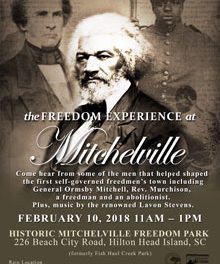 A Roundtable Discussion of Sexual Harassment (Part 2)
A Roundtable Discussion of Sexual Harassment (Part 2)
“Asking women why they didn’t report their sexual assault right away is akin to asking someone why they didn’t report their own kidnapping.”
Aparna Nancherla, American actress and comedian
All right, friends, we’re back with our discussion of the roiling context surrounding recurring sexual harassment and, often, outright assault. Lately, there are continuing stories about malign harassment within two Ford assembly plants in Chicago. The women’s stories are a brutal indictment of not just one huge company, but the hostility woven through the fabric of American businesses; and they point to the web of complexities involved in getting relief through HR and upper management. And, of course, the litany of accusations against celebrities only continues to grow. Mario Batali, Matt Lauer, James Levine, Charlie Rose, the list metastasizes on.
Before we continue, let’s reintroduce our guests. Kent Speight attended the University of Wisconsin law school, graduating in 1975. He joined a law practice in Minnesota, eventually running his own firm starting in 1986.
Mary J. Rogel is a Ph.D. social psychologist (her degree is from the University of Chicago) and a licensed acupuncturist with a full-time private practice in Chicago, where she lives with her husband and cat. She has taught psychology and acupuncture orthopedics, been involved in acupuncture politics and shape-note singing, and sings in a choir that performed at the Kennedy Center recently.
So off we go again!
Jack: First of all today, what can society do to accelerate the cultural cleansing of these terrible workplace conditions?
Kent: I think the first step to any recovery is recognition. If it is okay to grab women by the genitals (per our president) and get away with it because “I’m a star,” then nothing changes. The only way to fix the problem is to first recognize yeah, there is one. I think it’s critical we start having conversations like this one. Once we get it that there is a problem that urgently needs fixing, then we can try to do something. Laws can be passed prohibiting discrimination and hostile work environments. And some laws are already on the books. But until people ‘s attitudes change nothing else will.
Mary: How mothers and fathers interact tends to get reproduced throughout the family dynamic. But meanwhile, children learn so much before they get to school that I sometimes wonder how school teaches anything! We need a massive overhaul of the entertainment industry. Children learn a lot from television, music, and movies. For example, four year olds know ‘Let It Go’ by heart.’ They’re singing, “No right, no wrong, no rules for me,” “I don’t care what they’re going to say,” “Conceal, don’t feel, don’t let them know,” “Turn away and slam the door.” What are we teaching them? At that age, I was singing things like “I’m a Little Teapot!” And this is Disney, supposedly wholesome family entertainment!
It starts in the home. Look at children’s role models. Is it any coincidence that girls are cheerleaders, as young as six years old or younger, dressed in skimpy clothing, and boys are football players, rewarded for beating each other up? Hyper femininity and hyper masculinity are rewarded in our culture. Look at the role models in movies and entertainment. The female singers show off their bodies; the male singers are macho; and they both simulate sexual activity in their performances. I understand “Frozen” was a big hit. Disney. Wholesome, right?
Jack: Say more about that.
Mary: Take the YouTube video of one of the songs, “Let It Go.” The subliminal messages are outrageous. People argue that this song makes a lot of sense in the context of the movie . . . so that’s why it’s ok to tell little girls, “No right, no wrong, no rules for me!” Excuse me! Since when is that ok? Isn’t that what this whole harassment issue is about - men thinking that they can do whatever they please to women? So how does it make things better to tell girls that that applies to them, too?
Jack: You bet. Schools could play a much bigger role here than they have so far. Courses could be amended or added to curricula that emphasize acceptable behavior and the reasons why it is not alright for men and boys to harass women and girls. If current events teaching is still in vogue, lesson plans can be built around some of the higher profile sexual harassment cases that have been all over the news. Maybe the Weinstein or Lauer stuff.
Jack: With this backdrop . . . Have you folks encountered similar, uncomfortable situations in your workplaces or, previously, at school? How did you deal with these?
Personally, I can’t recall sexual harassment situations arising in any school or work situation I’ve encountered. No woman ever even raised the subject in general conversation. Maybe I was socialized in a weird bubble and then just never was very sensitive to situations that were unfolding all around me.
Kent: Likewise, I have seldom felt uncomfortable or threatened, and I have never been abused. But I have encountered many situations where I was uncomfortable at the way a man treated a woman. Lots of examples come to mind. One of my fellow lawyers lost his job as county attorney because he was having an affair with one of his secretaries. Both were married at the time. He actually was appointed judge by the governor and the night before he was going to be sworn in the secretary revealed the affair to the governor’s office and they canceled the appointment.
Mary: My earliest memory of sexual harassment goes back to age 13 while I was walking down a country road with one of my younger siblings to go to the corner grocery for my mother. I had an adult body by that age, and some guys shouted stuff out the window at me. I don’t remember now what they said, but I remember that it was about my breasts, and it was intimidating. I was glad they were going the other direction, and it left me shaken. But I had no idea what to do about it.
At twenty I graduated from college and moved to Chicago. On graduation day, I got words of wisdom from two of the faculty members in my major subjects. The sociologist told me to do everything I had to do to get my graduate degree, even if that meant sleeping with my professors. The psychologist suggested that I could pay for my education by prostituting. Nice advice, huh? Still makes my blood boil.
So I get to the U of C. My female advisor was only marginally better on this subject (she encouraged me to have sex with strange men about whom I knew nothing) and left after our first year. The only person accepting students was Fred. He delighted in putting me in uncomfortable situations. He would sit in class with his hand on my knee whenever he could.
One night he had me come to his girlfriend’s apartment to talk with his son about microphones for recording material I needed for my master’s thesis. When I got there, his girlfriend (another faculty member) was away, and he had an undergrad working in her kitchen. Clearly he was having a sexual relationship with her, and he made it obvious that this is what I was supposed to be doing too. He used to get so frustrated with me because he ‘couldn’t get a rise out of me.’
Over the years I learned to abandon fashion and dress in skirt suits that would hide my shape. That made things much easier. I even taught classes in these subjects and got involved in anti-rape education. I could go on and on about this.
Jack: Jeepers, we’re out of time. It’s like society is holding a fly rod and hooked a 200 pound yellowfin. Fish On!







